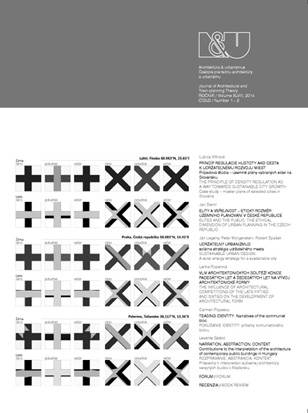ELITY A VEŘEJNOST – ETICKÝ ROZMĚR ÚZEMNÍHO PLÁNOVÁNÍ V ČESKÉ REPUBLICE
ELITES AND THE PUBLIC – THE ETHICAL DIMENSION OF URBAN PLANNING IN THE CZECH REPUBLIC
Author(s): Jan ŠlemrSubject(s): Cultural Essay, Political Essay, Societal Essay
Published by: Historický ústav SAV, v. v. i.
Keywords: ethics, territory planning, elite, public, participation
Summary/Abstract: The public sector in the Czech Republic increasingly displays activity in participation in matters of further interest – and not only in the process of spatial planning. Gradually emerging as the general trend in the Czech Republic is a grouping of orientations described in Western professional literature since the 1960s. An apt description of this term could be the democratization of planning, and the aerodynamics of the system in terms of benefits to market subjects. The activation of the general public results from the sense that the process of spatial planning ignores public opinion. This missing role in the planning process is called “advocacy planning”, involving a popularisation of the process for the general public, and mainly coming to the defence of the interests of those who lack an effective voice in the process within the institutions concerned. Particularly missing is the role of elites in the process of spatial planning – as an organizer of public discussion. One of the reasons is the inability to lead the process of participation and the other reason is an active effort deliberately to exclude local communities from the process. In brief, how the process is viewed by the elites in terms of of spatial planning can be stated in two ways. One is defined by an idealistic view, as in the formula: elites = power + morality + knowledge. However, the process of spatial planning is in actual practice most strongly influenced by what could be termed the quasi-elites, as in the formula: elites = power + knowledge. Legislative treatment of the process of spatial planning is a mandatory minimum, yet even here mere legal compliance cannot ensure an equitable solution. To do so depends on the society, what kind of political representation will be elected, and who will be form the elite. These two factors are an outcome of the social elements known as “soft values”, which legislative regulation is not able to transcribe and protect. Definitely, though, it is true that the problems confronting the assessment of the phenomenon of social elites in the Czech Republic has yet to be addressed in the professional literature of spatial planning. In the Czech Republic, the system of spatial planning is based on an emphasis of agreement among elected officials, which in turn holds the responsibility for assigning problems to specific leading experts. Legislation gives the public the option of direct participation in the process through two ways. The first option is that, in the event of doubts, the general public can provide objections, even in considerable detail, yet the question remains as to its future assessment and whether someone is going to take it into consideration. The other option has a further procedural consequence – to lodge an objection based on a factual point. In many instances, the second option has been abused in that the public interests are blocked, often in quite unsophisticated ways by private and particular interests...
Journal: Architektúra & Urbanizmus
- Issue Year: 48/2014
- Issue No: 1-2
- Page Range: 24 - 37
- Page Count: 14
- Language: Czech

